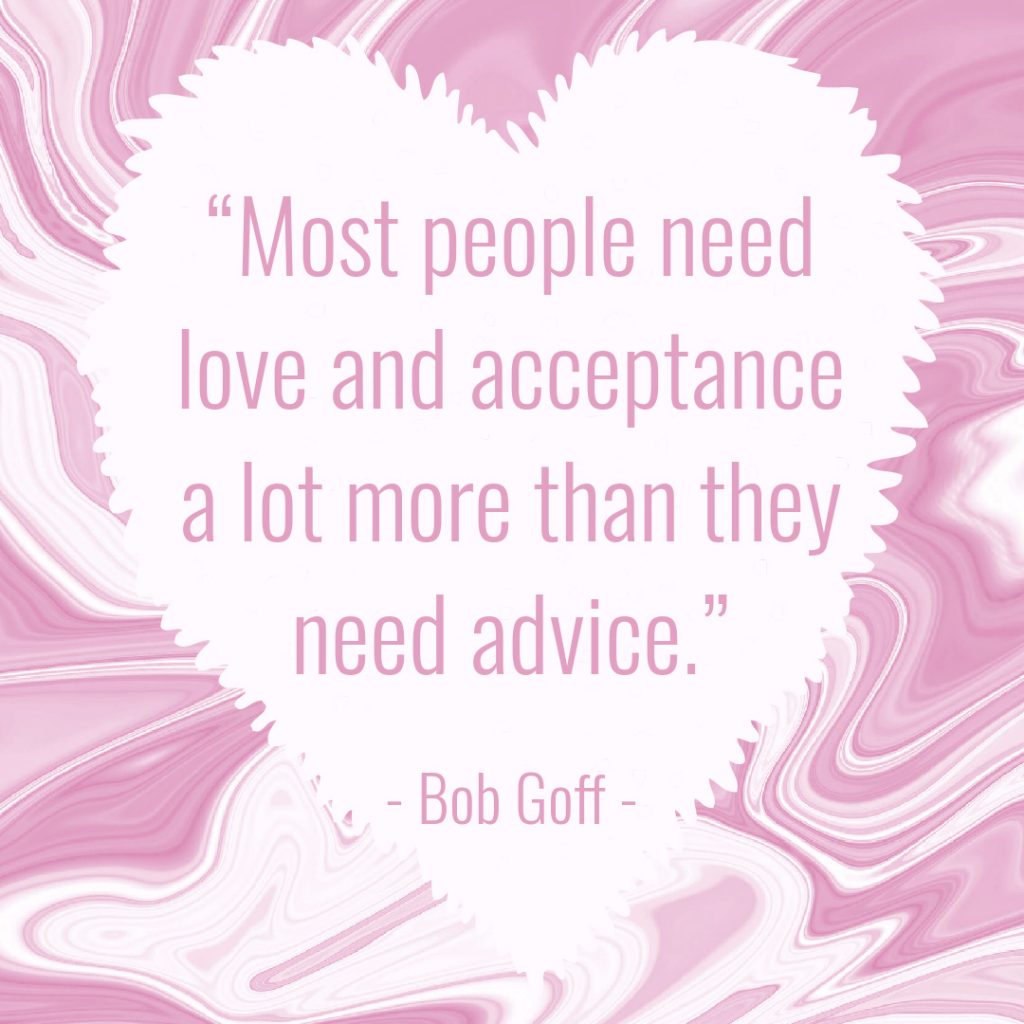It’s become a tradition of mine to write a love-themed post around Valentine’s Day each year. I have mostly steered clear from writing about romantic love because, while that’s the usual theme of Valentine’s Day, I’m far from a romance expert (understatement) and besides, that genre has been overdone (my humble and not-so-popular opinion). Instead, I’ve tended to focus more on the other aspects and manifestations of love. . . and never in my thirty-six years has LOVE been a concept more in need of some attention.
Over the past few years—especially since the start of COVID, and even more so since the recent presidential election—it seems we have all forgotten how to love. In fact, it seems we have entirely forgotten how to even be decent to one another. Kindness and common courtesy have been checked at the door as we openly boycott people whose views or lifestyles differ from ours, unfollow individuals who don’t openly espouse our own pet agendas, and harshly condemn anyone we believe has stepped out of line. All this is purportedly done in the name of truth and integrity. Sadly, it seems our high-minded values have blinded us to our own incivility.
I am all for standing up for one’s values, and I do not believe flagrant violence or hatred should ever be tolerated, but I just don’t think this incessant game of character policing is the answer. I truly believe it is possible to love people, even when we disagree. In fact, I KNOW it is possible, because it’s seen throughout Scripture.

The Bible doesn’t just give us permission to love our enemies; it commands it. In Romans 12, Paul encourages his readers to be devoted to one another in love, to bless those who persecute them, and to live in harmony with one another. Our nation would be a much more unified place if we each agreed to take just ONE of these practices into consideration.
To love others is not to condone their bad behavior, and a loving posture does not require us to compromise our values. But love DOES ask us to approach every individual with empathy and a willingness to assume the best in the people we struggle to understand. With love driving our interactions, we can fundamentally disagree with somebody while still respecting their ideas (or at least their right to have those ideas), honoring their personhood, and recognizing their intrinsic value.
Of course, there is a time and place for disagreement and helpful dialogue. (Arguably, social media platforms are rarely the right time or place for these sorts of disagreements.) But compassion, connection, and commitment to common courtesy MUST take precedence over our perceived needs of being heard and being right.
I hate to seem clichéd, but I really do think we would all benefit from looking to Jesus’ model for how to love those around us—including those who agree with us, AND those who don’t. Jesus spent much of his time with the worst of sinners, and while he regularly called them away from their sinful lifestyles, he never led with condemnation. Jesus welcomed deniers and deceivers into his closest circles. . . he forgave behaviors that were culturally punishable by execution. . . he extended compassion to people whose actions rendered them worthless in the eyes of society. . . he washed the feet of the man who was about to betray him. . . he humbled himself to life in human form, and then gave that very life for a world who has repeatedly turned against him.
When Jesus—God Himself—commands us to love one another as He has loved us (i.e., sacrificially and with no strings attached), who are we to argue?
In seeking out present-day examples of people who are excelling at loving others, I have been inspired time and again by the example set by Bob Goff. Bob has written books on how to love others, and from the outside looking in, it appears that he fully lives out the principles he espouses in his book. On his podcast, Bob regularly invites guests whose lifestyles and values likely don’t align with his own or those of his audience. But he doesn’t spend time justifying his interview choices or over-explaining his own perspectives. Instead, he meets guests where they are, extending loving kindness in his dialogue and his treatment of those on the other side of him. Bob occasionally talks about Jesus, but more importantly, He follows Jesus’ example of letting his loving actions speak louder than his words.

Both Bob and Jesus have shown us that love comes without an agenda. We don’t love others so that they will begin to see things our way, or to make ourselves look good, or even in the hopes that we will receive the same love (or courtesy) in return. WE JUST LOVE! Our loving words and actions might not make sense to our earthly selves, and we might feel as though loving our enemies is compromising our integrity or undermining our message. We might find ourselves loving people who truly hate us and want nothing to do with our extended olive branches. But in this upside-down Kingdom that Jesus invites us to be a part of, we have no excuse. We love simply because He first loved us.